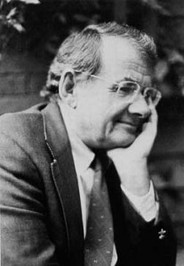Leston Havens
Born
in New York City, The United States
July 31, 1924
Died
July 29, 2011
Website
Genre

|
Making Contact: Uses of Language in Psychotherapy
—
published
1986
—
8 editions
|
|

|
A Safe Place: Laying the Groundwork of Psychotherapy
—
published
1989
—
5 editions
|
|

|
Coming to Life: Reflections on the Art of Psychotherapy
—
published
1993
—
5 editions
|
|

|
Approaches to the Mind: Movement of the Psychiatric Schools from Sects to Science
—
published
1987
—
3 editions
|
|

|
Participant observation
—
published
1977
—
6 editions
|
|

|
Psychiatric Movements: From Sects to Science
by
—
published
2004
—
3 editions
|
|

|
Psychology and Politics
|
|

|
A Safe Place: A Glimpse into the Private World and Complex Relationship of Patient and Therapist
—
published
1991
|
|

|
Approaches to the Mind
|
|

|
Making Contact, Uses of Language in Psychotherapy
|
|
“Cannibalism and slavery are probably the oldest manifestations of human predation and submission. Although both are now discouraged, their continued existence in psychological forms demonstrates that civilization has achieved great success in moving from the concrete and physical to the abstract and psychological, while persisting in the same purposes.”
―
―







